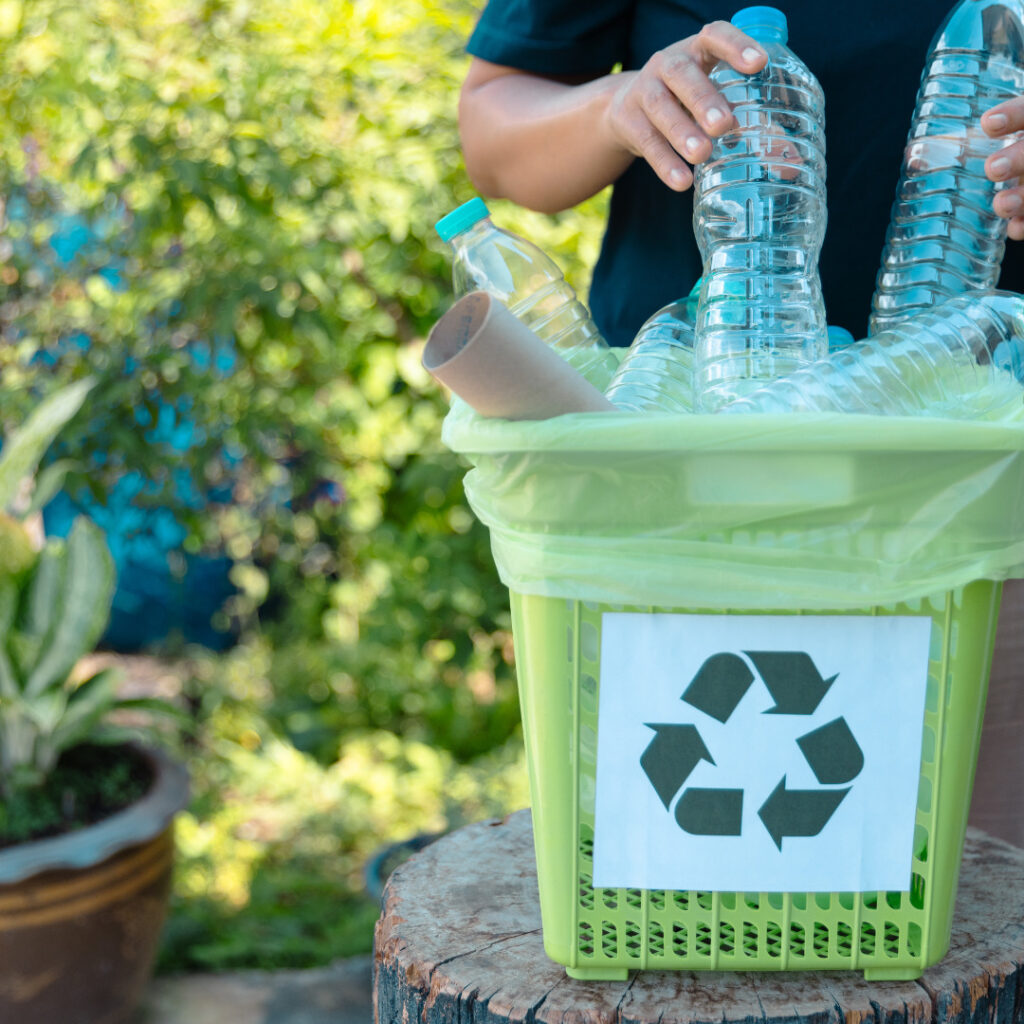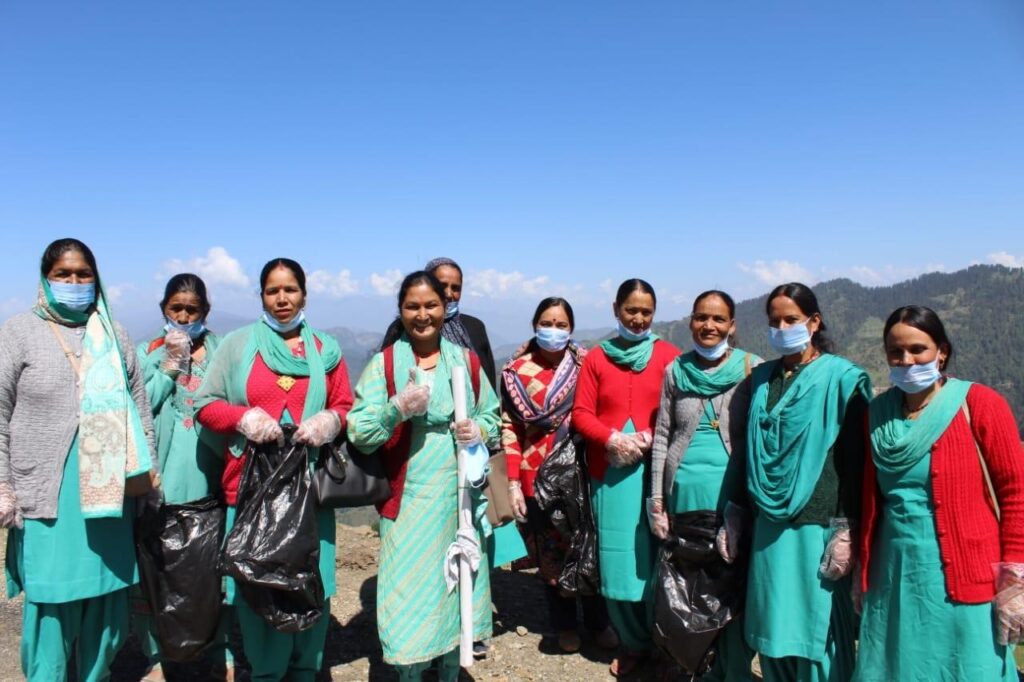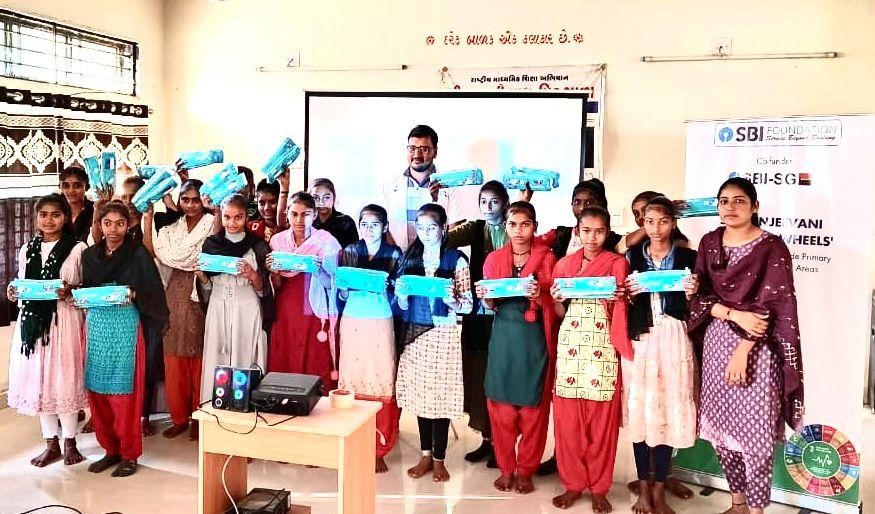Waste Management Awareness by Ashray Foundation

Ashasmiti Das :-
Latest estimates show that India produces a record 960 million tons of waste per year. Urban India generates 62 million tons of Municipal Solid Waste and this is expected to reach 160 million tons by the year 2030.
Collection of Municipal Solid Waste is about 43 million tons that is collected annually and out of this, 31 million tons are dumped in landfills and 11.9 million tons are further processed and treated.
Research shows that, India recycles 90% of its PET waste (polyethylene terephthalate), which is higher than in countries with formalized waste disposal management systems. But is this cause for hope?
If the recent hazardous fire at Kochi’s Brahmapuram Dump-site is any indication, it seems like the last few years have not made any difference at all. Debates still range about whether the fire should be termed as an instance of environmental disaster or simply a case of waste mismanagement. Years after the Bhopal Gas Tragedy, we are still squabbling over meanings and eschewing accountability of any kind. At the root of this fire, is the absence of garbage separation [separation of waste] at the source. Every day that the dumpsite burns, more and more toxins are being released into the environment affecting firefighters, common people and mostly, the ecosystem. Repeated calls for an inquiry and/or investigation into the fire have reaped no benefits.
The invisible politics of waste management in India is a legacy of the caste system and is built upon the principles of purity and pollution. It is hardly a surprise that the informal sector of waste management employs only impoverished and marginalized people belonging to minority communities. It is an uphill battle to not only obtain dignity of life and labor for waste workers but also to effect long-term behavioral changes, and changes in people’s perspectives as well. Despite well-intentioned plans, waste segregation at source and sorting at later stages is not accomplished in accordance with quality standards. Bins overflow and litter the environment, open vehicles are used for transportation which mix up the different categories of waste, and spill into roads. Very often, the collected waste is burned to destroy it or even to provide warmth against the cold. Waste accumulating in these dumping sites are the breeding grounds of flies and diseases. Poor waste management results in leakage and leachate, which seep into the ground, affecting the availability of potable drinking water.

However, composition of solid waste in India is slightly different. The majority of India’s waste is organic and can be vermi-composted to initiate a circular, inclusive economy. With this aim in mind, Ashray Foundation took to transforming the consumption habits and behavioral attitudes towards waste, waste-management and collection. Extending relations of care throughout the circuit of garbage separation, waste collection, recovery, and recycling, we conducted awareness and training sessions on eco-conscious, egalitarian waste management. Women in Santalpur Taluka, Gujarat in collaboration with Ashray have taken to waste sorting and segregation at the source. They received training from us in separating the different kinds of waste and establishing a nutrient rich vegetable bed. They have successfully converted organic waste into compost that fertilizes and sustains the fruits, vegetables and crops they grow in their yards. This initiates a chain of recovery and recycling and minimizes waste production. The women in Santalpur taluka have achieved the goals of Zero waste, while engaging in a new form of livelihood, increasing their enterprise and meeting the nutritional demands of their family.
DidYouKnow: The entire Indian cricket team’s apparel for the 2015 world cup was made from recycled PET bottles. Even their current jersey is made from this material.

In Patan district of Gujarat, we carried out a Menstrual Hygiene Awareness and literacy campaign, in which we got in touch with the local Health Workers and distributed more than 8000 sanitary napkin packets. The menstrual hygiene practices before our intervention were next to nothing and a lot of superstitions and silences abounded. Not only did we set up SHGs as safe places for women to talk about issues related to their health, but also provided training and literacy sessions on safe sanitary pad disposal practices. Currently, the existing menstrual hygiene eco-conscious products are not equally accessible and are frankly, expensive. We have taken a small step in this direction by discouraging open disposal of pads, and burning of sanitary products and by triggering a shift from ineffectual methods of menstrual health and hygiene management. Women and adolescent girls in Patan’s villages have not only begun to talk openly about female health and hygiene but also better understand the importance of making sure that their used products are not exposed to human hands and/or the environment.
These are but rudimentary steps and the road ahead is long and hard. However, we believe in the innate ability of human beings to create lasting change through their actions. We have had to contend with a lot of misinformation and mismanagement; age-old superstitions about menstruation and waste management are deeply embedded in the country’s social organization. Waste sorting and segregation is only the first step towards eco-conscious practices, but we are glad to have set the ball rolling.
